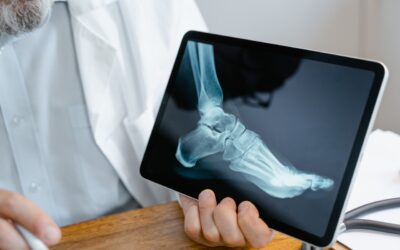Why Virtual Speech Therapy Is an Important New Telehealth Tool
Approximately 46 million people, or 14 percent of the American population, have been diagnosed with a communication disorder, according to the School Programs in Speech-Lanuage Pathology. A speech therapist can help people of all ages overcome speech problems and...
How Do We Address the Key Risk Factors for Low Telemedicine Literacy?
Because of the expansion of telehealth services through the 2020 Coronavirus Aid, Relief, and Economic Security (CARES) Act, there is growing potential for the use of telemedicine in the field of plastic surgery. A new study identifies populations that may have...
How Emergency Pediatric Telemedicine Consultations Can Reduce Interfacility Transfers
Emergency departments in rural areas seldom have access to physicians who specialize in pediatric care. Consequently, when a child suffering from an acute condition comes to one of these healthcare clinics seeking medical attention, they are usually transferred to a...
Evolving Telehealth Policy Presents Opportunities as AAFP Raises their Concerns
The American Academy of Family Physicians (AAFP) recently sent two letters to Congress in response to a request for feedback from the Senate Telehealth Working Group and the House Telehealth Caucus to make policy recommendations that inform the reintroduction of the...
How Telehealth Can Improve Healthcare in Schools
Schools across the United States are starting to partner with healthcare facilities and telehealth services to provide students, as well as staff, with much-needed healthcare services. With many schools lacking access to adequate healthcare facilities, telehealth is...
What Is Teleradiology, How Does It Work, and What Are the Benefits?
Telemedicine is a new form of medical service that utilizes digital technologies to facilitate health care, including transferring medical information between health practitioners. Teleradiology is a specialized branch of telemedicine in which radiographic medical...
What Is Telepsychiatry, How Does It Work, and What Are the Benefits?
Telepsychiatry is a branch of telemedicine that focuses on mental health care. It can include psychiatric evaluations, therapy (in the form of individual, family or group therapy), providing the patient with information to help them deal with mental health issues and...
What Are the 3 Primary Types of Telemedicine and Are They Mutually Exclusive?
Telemedicine comes in various modalities, all of which are conducted remotely using data transfer and telecommunications technology. The most basic form of telemedicine is a telephonic consultation between medical practitioner and patient. However, innovative new...
How Telehealth Can Benefit Patients Who Call 911
Mount Sinai Health System in New York City recently became the first health center in the region to offer telehealth services to patients who call 911 for medical assistance with low-acute injuries and health conditions. This service, a collaborative effort initiated...
3 Common Myths Busted: Studies Show Telemedicine Is Effective and Facilitates Access to Healthcare
A new study concludes that common concerns regarding telemedicine are unfounded, and it highlights how effective digital health is at providing access to quality care for all. The study is one of two telehealth studies conducted by researchers from the University of...









